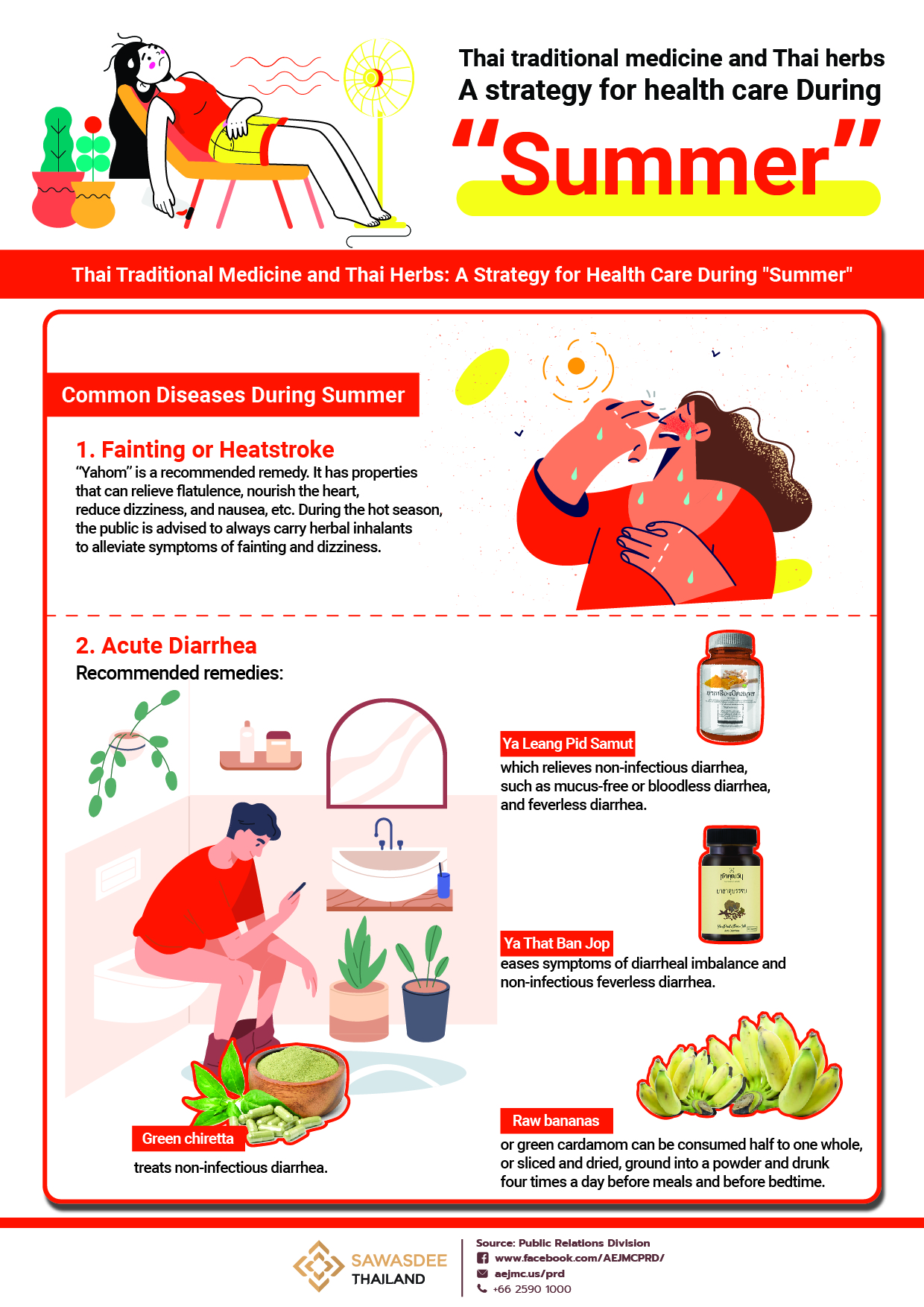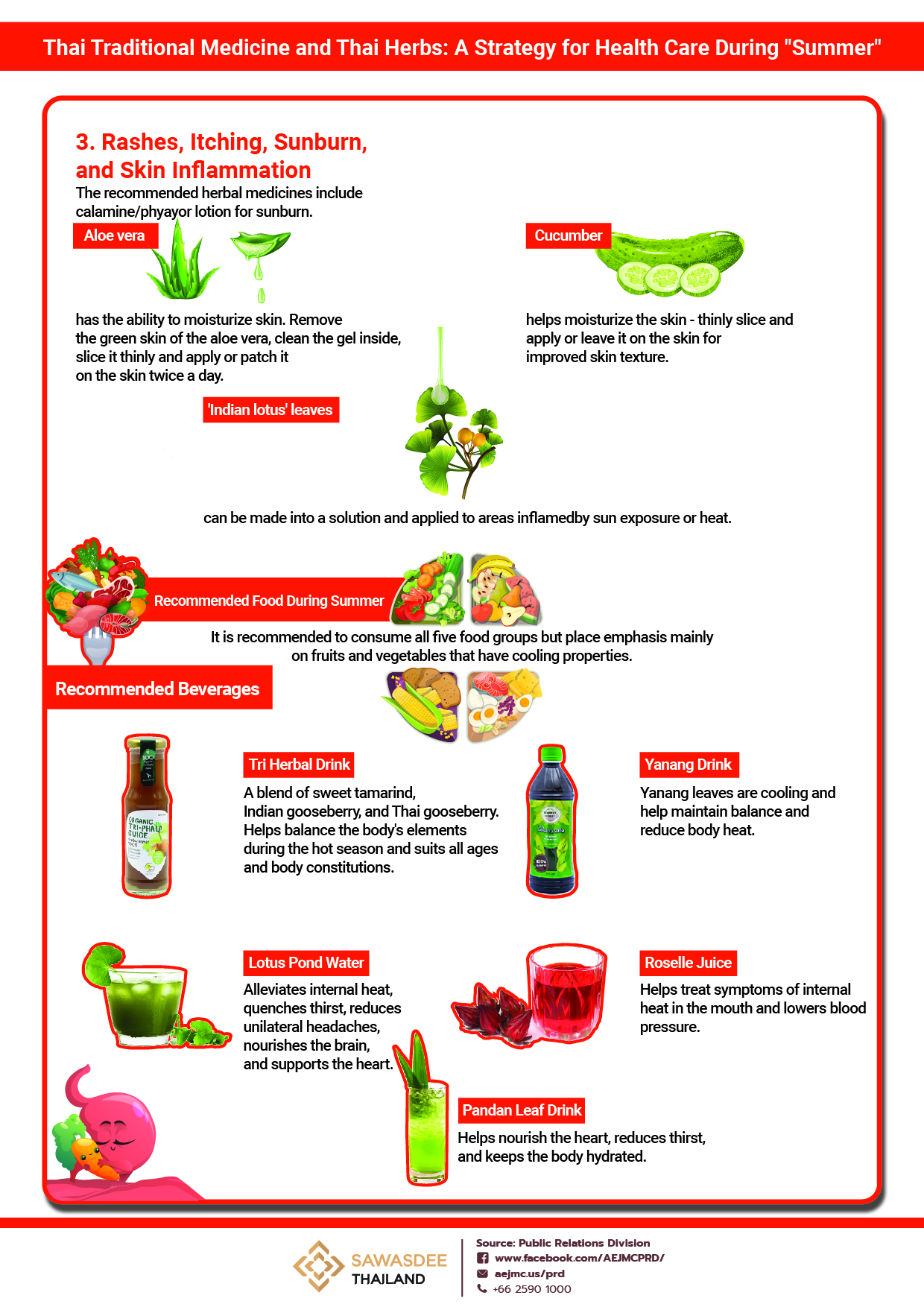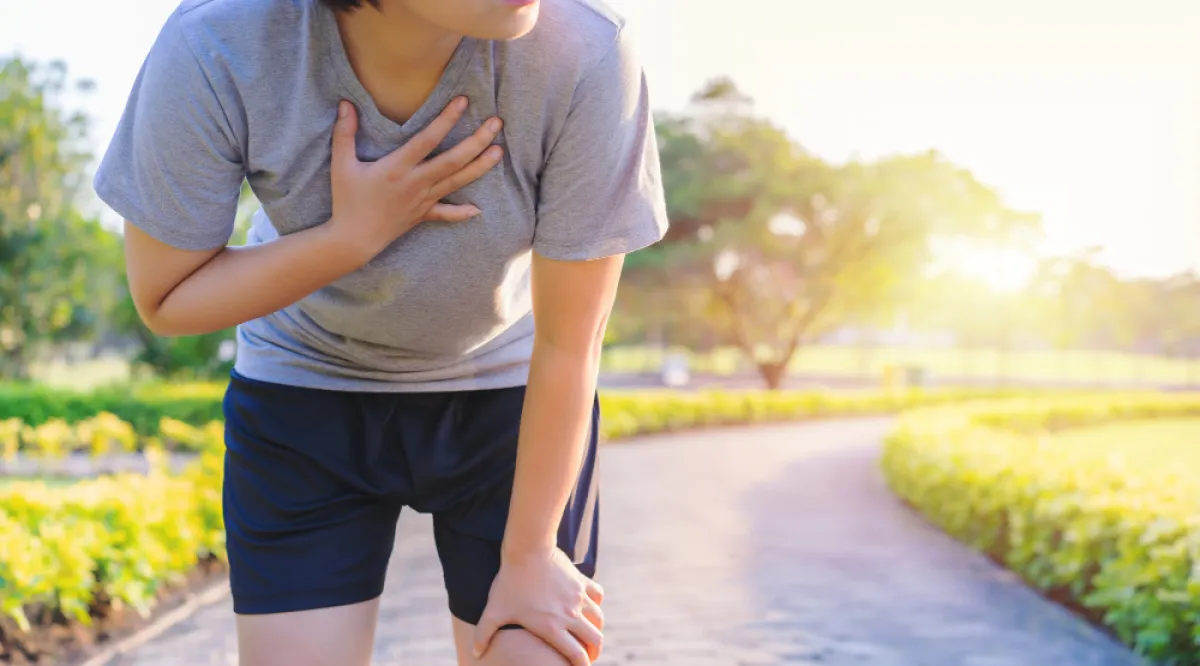Thailand, being a tropical country, may face temperatures exceeding 40 degrees Celsius during the hot season. Consequently, the Department of Thai Traditional and Alternative Medicine advises the public to use Thai traditional medicine and herbal remedies to cope with the extreme heat. The department recommends the use of aromatic medicinal compounds, herbal formulas, suitable food, and beverages to alleviate common health issues encountered during this season.
The diseases that often occur in the hot season include fainting, heatstroke, acute diarrhea, and skin diseases.
- For fainting or heatstroke, it's suggested to carry aromatic medicine “Yahom” with you. It has properties that can relieve flatulence, nourish the heart, reduce dizziness, and nausea, alleviate stomach pain, among others. During the hot season, the public is advised to always carry herbal inhalants to alleviate symptoms of fainting and dizziness, which are easy to carry and can be inhaled whenever symptoms occur.
- For acute diarrhea, the recommended herbal medicine includes 'Ya Leang Pid Samut', which relieves non-infectious diarrhea, such as mucus-free or bloodless diarrhea, and feverless diarrhea. 'Ya That Ban Jop' eases symptoms of diarrheal imbalance and non-infectious feverless diarrhea. Raw bananas or green cardamom can be consumed half to one whole, or sliced and dried, ground into a powder and drunk four times a day before meals and before bedtime. 'Green chiretta' treats non-infectious diarrhea.
- For skin care during the hot season, common issues include rashes, itching, sunburn, and skin inflammation. The recommended herbal medicines include calamine/phyayor lotion for sunburn. Aloe vera helps soothe such conditions due to its moisturizing properties. Remove the green skin of the aloe vera, clean the gel inside, slice it thinly and apply or patch it on the skin twice a day. Cucumber helps moisturize the skin - thinly slice and apply or leave it on the skin for improved skin texture. 'Indian lotus' leaves can be made into a solution and applied to areas inflamed by sun exposure or heat. Alternatively, fresh Indian lotus leaves can be crushed, and the juice applied to inflamed skin, accelerating recovery.
For meals during the summer, it's recommended to consume all five food groups but place emphasis mainly on fruits and vegetables that have cooling properties. Recommended dishes to relieve heat include:
- Stuffed Bitter Gourd Soup: Bitter gourds have medicinal properties, such as cooling down the body, removing fever toxins, quenching thirst, relieving heat, reducing inflammation, and soothing sore throats.
- Mild Spicy Shrimp Soup (Kaeng Liang Goong): A traditional dish comprising various vegetables such as ivy gourd leaves, climbing wattle, zucchini, tofu, straw mushrooms, and fingerroot. These vegetables offer health benefits, and the hot soup can induce sweating, providing a sense of relief and comfort.
- Suitable clear soups for hot weather include Wax Gourd Soup, Ivy Gourd Soup, and Cassia Leaves Curry.
Recommended beverages include:
- Tri Herbal Drink: Composed of three types of fruit - sweet tamarind, Indian gooseberry, and Thai gooseberry. This beverage adjusts the body's elements during the hot season, helping maintain the balance of the body's four elements. It can be consumed by all ages and suits all body constitutions.
- Yanang Drink: Yanang leaves are cooling and help maintain balance and reduce body heat.
- Lotus Pond Water: Alleviates internal heat, quenches thirst, reduces unilateral headaches, nourishes the brain, and supports the heart.
- Roselle Juice: Helps treat symptoms of internal heat in the mouth and lowers blood pressure.
- Pandan Leaf Drink: Helps nourish the heart, reduces thirst, and keeps the body hydrated.
Source: Public Relations Division, Office of the Permanent Secretary, Ministry of Public Health, 88/20 Moo 4, Talad Kwan Subdistrict, Mueang District, Nonthaburi 11000
Tel. +66 2590 1000.
For more information




